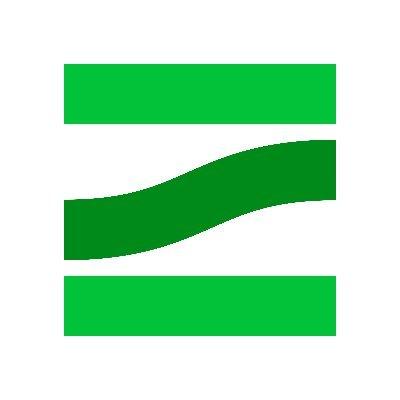Buy pre-IPO stock in private companies
Invest in multimillion-dollar art shares
Investments
$10,000
The minimum investment on EquityZen is $10,000, though this may vary by offering.
Investments
$3,000
The minimum investment required on Mintus for art investment opportunities is $3,000, with investment amounts typically ranging from $15,000 to $100,000.
High Risk
4/5
Investing in private companies via EquityZen involves risks such as limited liquidity, market volatility, company performance uncertainties, regulatory changes, less available information, and potential lack of diversification, which could impact investment returns.
Moderate Risk
3/5
Investing in Mintus carries risks such as market volatility affecting art values, limited liquidity options until the secondary market launches, potential regulatory changes impacting investment practices, operational challenges, and the subjective nature of art valuation.
Minimum Liquidity
1/5
EquityZen offers liquidity for vested shares only. It does not provide liquidity for unvested shares, unvested RSUs, or options directly.
Minimum Liquidity
1/5
Mintus plans to introduce a secondary market feature, which is currently marked as "coming soon". This future addition aims to enhance liquidity by allowing investors to sell their shares in artworks to other users, although it's not yet available.
Receive new reviews from Fintorial
Not Predictable Return
N/P
Unlike public market investments, private investments carry higher risks and unpredictability. Consequently, it's challenging to define a standard return rate for EquityZen investments.
Moderate Return
8.9 %
Mintus targets an 8.9% annual growth rate for investments, though actual returns may vary due to market conditions and art performance.
Long-term Investment
2-5 years
Typically, companies on EquityZen have received late-stage funding, suggesting an expected investment horizon of 2-5 years, but outcomes can vary widely.
Long-term Investment
5+ years
Investments through Mintus generally have a long-term horizon, often spanning several years, due to the nature of art appreciation and market trends. Exact duration may vary based on specific artworks and market conditions, with potential for earlier liquidity once the secondary market is introduced.
Who can invest
International
Mintus allows both individual investors and institutions to invest in artworks. Individual investors need to qualify as "high net worth individuals", "sophisticated investors", or "accredited investors" and pass an appropriateness assessment. Institutions like wealth managers and family offices should contact Mintus directly for specific investment options.
Moderate Volatility
3/5
Assets on EquityZen, which are shares in private companies, can be highly volatile due to limited public information, sensitivity to market conditions, low liquidity, and company-specific events, leading to significant price fluctuations.
Moderate Volatility
3/5
The volatility of assets on Mintus, consisting of high-value artworks, is influenced by art market dynamics, economic factors, and the unique characteristics of each piece, such as rarity and provenance. These elements can cause fluctuations in art valuations, making them inherently volatile investments that require careful consideration.
Regulation and audits
SEC Regulated
EquityZen Securities is registered with the SEC and is a member of FINRA/SIPC, ensuring it adheres to regulatory standards and practices for investor protection and undergoes regular audits.
Regulation and audits
FCA Regulated
Mintus is authorized and regulated by the Financial Conduct Authority (FCA) in the UK. This regulatory oversight ensures Mintus meets strict standards for investor protection, transparency, and market integrity, although specific audit details are not mentioned.
Insurance
No
EquityZen is a FINRA/SIPC member firm, offering account protection up to $500,000 (including $250,000 for cash claims) through SIPC in case of brokerage failure, not covering market value losses.
Insurance
Yes
Details on insurance for artworks on Mintus are not explicitly mentioned. Typically, art investment platforms secure artworks against risks like damage or theft through insurance.
Payouts
No Recurring Payouts
Investors in private companies on EquityZen typically do not receive dividends, as these companies often reinvest profits to fuel growth.
Payouts
No Recurring Payouts
Mintus does not offer traditional dividends. Instead, investors gain returns through the appreciation and eventual sale of the artworks, receiving profits based on their share ownership.
Withdrawals
Investors can get their money back from investments on EquityZen mainly through an IPO, acquisition of the company, or secondary market sales on the platform. However, returns depend on market demand and timing of these liquidity events, with no guaranteed timeline.
Withdrawals
Investors on Mintus receive their returns after the sale of an artwork, with profits made available in their wallet. They can then choose to withdraw these funds to a bank account or reinvest in other artworks on the platform.
Extra Fees
Yes
EquityZen charges a 5% fee to sellers upon transaction closure. For investors, a one-time sales fee applies: 5% for investments up to $500,000, 4% for $500,000 to $1 million, and 3% for over $1 million.
Extra Fees
Yes
Fees on Mintus vary by artwork and investment structure, with all fees shown in advance in the Memorandum document available for each opportunity.
Taxes
Tax Form
EquityZen issues a Schedule K-1 for taxable events and provides vetted tax documentation to investors. Upon investment, individuals complete necessary tax forms (W-9 or W8-BEN) and receive annual tax updates.
Taxes
Annual Statement
Mintus notes that artworks don't generate income while held, so tax implications mainly stem from capital gains upon sale.

